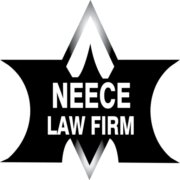Best Foreclosure Lawyers in North Carolina
Share your needs with us, get contacted by law firms.
Free. Takes 2 min.
Free Guide to Hiring a Real Estate Lawyer
Or refine your search by selecting a city:
List of the best lawyers in North Carolina, United States
About Foreclosure Law in North Carolina, United States
Foreclosure is a legal process that occurs when a homeowner fails to make mortgage payments, resulting in the lender seeking to recover the balance of a loan by forcing the sale of the property. In North Carolina, most foreclosures are non-judicial, meaning they do not usually require a court proceeding. Instead, the process generally moves forward through the office of the Clerk of Superior Court in the county where the property is located. North Carolina’s foreclosure laws have specific procedures and timelines that protect both lender and borrower rights. Understanding these laws is crucial if you are facing foreclosure or involved in a foreclosure proceeding.
Why You May Need a Lawyer
Foreclosure can be a complex and overwhelming experience. You may want to seek legal assistance for several reasons:
- To receive guidance on loan modification or refinancing options
- If you believe the lender has not followed proper foreclosure procedures
- To defend against foreclosure if you think you have been wrongfully targeted or if the foreclosure involves predatory lending practices or fraud
- If you are a homeowner struggling with payments and facing imminent foreclosure notices
- If you are interested in exploring bankruptcy as a means to halt or slow down foreclosure proceedings
- To negotiate with the lender for more manageable repayment terms
- To understand your rights regarding the redemption of your property or surplus funds after a foreclosure sale
Local Laws Overview
Foreclosure law in North Carolina is governed primarily by state statutes and several important local procedures:
- North Carolina is generally a non-judicial foreclosure state. This means most foreclosures take place outside of court, though judicial procedures can still be used in some cases.
- Lenders must provide borrowers with a notice of default and an opportunity to resolve the delinquency before starting a foreclosure action.
- The required notice of hearing must be filed with the Clerk of Superior Court at least 20 days before the actual foreclosure hearing date.
- At the foreclosure hearing, the Clerk will determine if the lender has the right to foreclose. If so, the property will be sold at a public auction, also known as a foreclosure sale.
- Once the property is sold, there is typically a 10-day "upset bid" period allowing others to submit higher bids.
- Homeowners generally do not have a statutory right of redemption after the upset bid period has concluded, but there are some exceptions for certain types of foreclosures or if the sale is not finalized.
- North Carolina has protections and relief options for homeowners in military service and for those with certain types of loans.
Frequently Asked Questions
What is the typical timeline for the foreclosure process in North Carolina?
The foreclosure process can take several months. After a missed payment, the lender must notify the borrower and provide an opportunity to cure the default. Once formal notice is filed, the foreclosure hearing usually occurs at least 20 days later, followed by a public auction and a 10-day upset bid period.
Will I be notified before foreclosure proceedings begin?
Yes, North Carolina law requires lenders to send a notice of default and intent to foreclose, giving you a chance to resolve the delinquency before any legal action begins.
Can I stop a foreclosure once it has started?
There are several options, including reinstating your loan by paying the overdue amount, working out a loan modification, filing for bankruptcy, or challenging improper procedures with legal advice.
What happens at a foreclosure hearing?
During the foreclosure hearing, the Clerk of Superior Court reviews documentation to determine if the lender has the legal right to proceed with foreclosure. Homeowners can present their case and raise any defenses at this hearing.
What is an upset bid, and how does it work?
An upset bid occurs after the foreclosure sale. During the 10-day upset bid period, anyone can submit a higher bid for the property by following legal procedures and paying the required deposit.
Is there a right of redemption after foreclosure in North Carolina?
Unlike some states, North Carolina generally does not offer a post-sale statutory right of redemption for most properties after the upset bid period has concluded.
How can bankruptcy affect a foreclosure in North Carolina?
Filing for bankruptcy can provide an automatic stay, temporarily stopping foreclosure while you work with the court to form a repayment plan or resolve debts, depending on the type of bankruptcy filed.
Can I recover surplus funds if my home is sold at foreclosure for more than what I owe?
Yes, if the foreclosure sale yields more than the outstanding mortgage and related costs, you may be entitled to claim the surplus funds. These are held by the Clerk of Superior Court until claimed by rightful owners.
Are there any protections for active duty military members?
Yes, federal and state laws provide specific protections for active duty military members, including additional notice requirements and the ability to request stays of proceedings.
Should I attend the foreclosure hearing?
It is highly recommended that you attend, as it provides the opportunity to present defenses, bring up any errors in the process, and possibly work out an arrangement to avoid foreclosure.
Additional Resources
If you need more information or help, the following resources may be useful:
- North Carolina Administrative Office of the Courts (for court filings and local procedures)
- Legal Aid of North Carolina (offering free legal help for those who qualify)
- North Carolina Housing Finance Agency (for information on foreclosure prevention programs)
- The Consumer Financial Protection Bureau (for federal rights and resources related to mortgages and foreclosure)
- North Carolina Department of Justice - Consumer Protection Division (for reporting issues or getting assistance with mortgage fraud)
Next Steps
If you are facing foreclosure in North Carolina, it is important to act quickly and seek help. Here are suggested steps:
- Review all correspondence and legal documents from your lender carefully
- Gather your mortgage documents and keep a record of all communications
- Seek a consultation with a qualified foreclosure lawyer who understands North Carolina law
- Contact local legal aid organizations if you cannot afford an attorney
- Attend all scheduled hearings and be prepared to present your case or any defenses
- Explore options such as loan modification, forbearance, or other loss mitigation programs
- Stay informed about your rights and take proactive steps to address any issues early in the process
Facing foreclosure can be challenging, but understanding the process and securing the right legal assistance can make a significant difference.
Lawzana helps you find the best lawyers and law firms in North Carolina through a curated and pre-screened list of qualified legal professionals. Our platform offers rankings and detailed profiles of attorneys and law firms, allowing you to compare based on practice areas, including Foreclosure, experience, and client feedback.
Each profile includes a description of the firm's areas of practice, client reviews, team members and partners, year of establishment, spoken languages, office locations, contact information, social media presence, and any published articles or resources. Most firms on our platform speak English and are experienced in both local and international legal matters.
Get a quote from top-rated law firms in North Carolina, United States — quickly, securely, and without unnecessary hassle.
Disclaimer:
The information provided on this page is for general informational purposes only and does not constitute legal advice. While we strive to ensure the accuracy and relevance of the content, legal information may change over time, and interpretations of the law can vary. You should always consult with a qualified legal professional for advice specific to your situation.
We disclaim all liability for actions taken or not taken based on the content of this page. If you believe any information is incorrect or outdated, please contact us, and we will review and update it where appropriate.
Browse foreclosure law firms by city in North Carolina
Refine your search by selecting a city.













